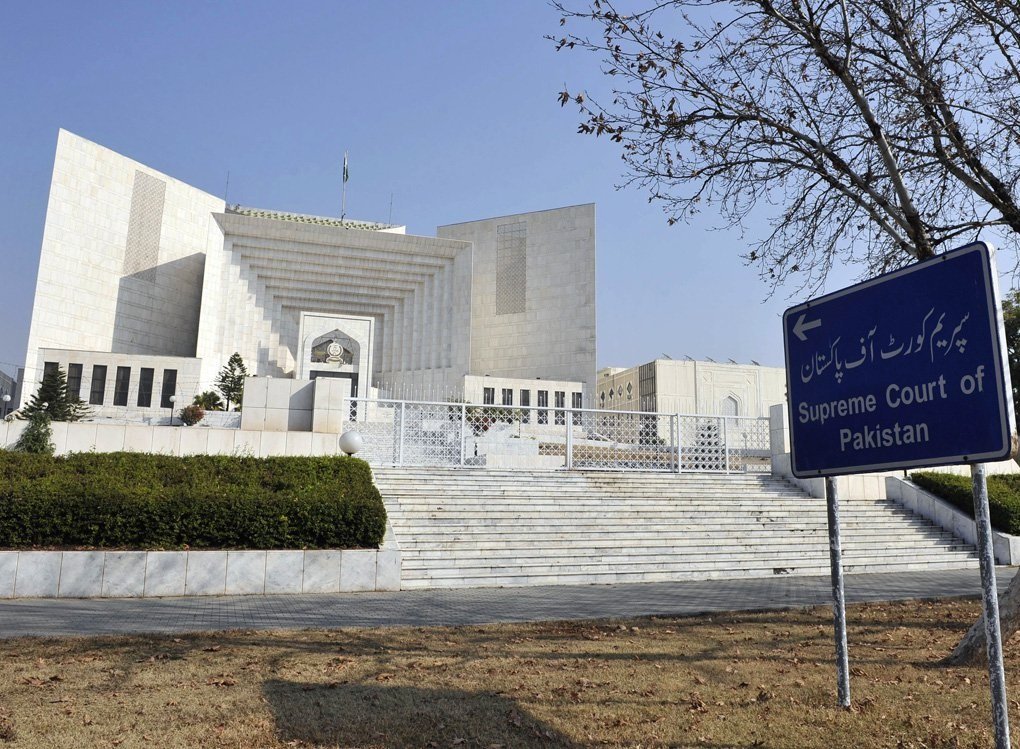
The top court has noted that bigoted behaviour towards minorities painted the entire nation in poor colour, labelling people of Pakistan as intolerant, dogmatic and rigid as it overturned a Lahore High Court order, which had endorsed the charges of blasphemy against members of the Ahmadiyya community on the allegation that they had styled their place of worship as a mosque and displayed Islamic symbols on its inner walls.
"To deprive a non-Muslim (minority) of our country from holding his religious beliefs, to obstruct him from professing and practicing his religion within the four walls of his place of worship is against the grain of our democratic Constitution and repugnant to the spirit and character of our Islamic Republic,” read nine-page judgment, authored by Justice Syed Mansoor Ali Shah, who was heading a division bench hearing a petition against the offence of blasphemy on Ahmadi individuals.
It was also alleged that the electricity bill of the Ahmadi place of worship described it as a mosque.
On these allegations, the petitioners were put to trial. On November 23, 2020, the trial court had framed the charge against the petitioners for offences punishable under Sections 298-B and 298-C of the PPC.
Later, the complainant filed an application under Section 227 of the CrPC for alteration of the charges. He claimed that offences punishable under Sections 295-B and 295-C PPC were also attracted and should be added to the charges.
Also read: LHC sets aside BZU's suspension of Ahmadi’s admission
The LHC also endorsed the inclusion of blasphemy charges against the petitioners.
The apex court posed the question as to that whether or not the allegations levelled in the crime report and the material collected in the course of the investigation attracted the commission of offences punishable under Sections 295-B and 295-C of the PPC.
The judgment noted that observations of this court and of the Federal Shariat Court were in line with the constitutional values enshrined in the preamble to constitution which require citizens to be tolerant as a people, believe in freedom, equality and social justice, and respect minorities and make adequate provisions for them to freely profess and practice their religions and develop their cultures and to safeguard their legitimate interests.
The court noted that even though Article 260(3) of the Constitution declared Ahmadis as non-Muslims, it neither disowned them as citizens, nor deprived them of their entitlement to their fundamental rights.
The court observed that to constitute an offence under Section 295-B, the reading thereof showed that the accused must have defiled, damaged or desecrated a copy of the Holy Quran or an extract therefrom or use it in any derogatory manner or for any unlawful purpose.
"There is no allegation in the crime report that attracts the said offence. The courts below have held that the mere reading of the Kalima or the Holy Quran by a non-Muslim/Ahmadi attracts Section 295-C. This, in our view, is not only far-fetched, but also fails to meet the fundamental constituents of the crime, i.e., mens rea and actus reus. Only that which resides in the mind of a non-Muslim while reading the Holy Quran is not sufficient to constitute the offence."
Also read: Bail plea of Ahmadi man who ‘tricked Muslim woman into marriage’ rejected
Similarly, the court added, to constitute an offence under Section 295-C of the PPC, there must be words spoken or written or by visible representation or any imputation, innuendo or insinuation, direct or indirect, which defiled the sacred name of the Holy Prophet Muhammad (PBUH).
“In the instant case, the display of the Kalima and having the name of the Holy Prophet Muhammad (PBUH) inside the place of worship do not attract the constituents of the said offence.”
The verdict read what ran inside the mind of an Ahmadi while reading the Kalima did not constitute an offence punishable under Section 295-C of the PPC unless there was some overt act on his part that defiled the sacred name of the Holy Prophet Muhammad (PBUH).
The court observed that the trial and revisional courts had not correctly examined the ingredients necessary to constitute the offences punishable under sections 295-B and 296-C PPC and the petition was therefore converted into an appeal and allowed.
“The impugned order is reversed, the petition of the petitioners under Section 561-A CrPC is accepted and the orders of the trial and revisional courts are set aside. The trial of the petitioners shall proceed on the basis of the charge framed on 23.11.2020 only for offences punishable under Section 298-B and 298-C of the PPC.”






















COMMENTS (7)
Comments are moderated and generally will be posted if they are on-topic and not abusive.
For more information, please see our Comments FAQ